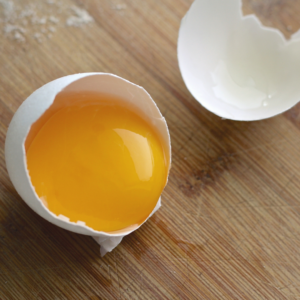
Boost Your God-Given Immune and Reproductive System This Cold and Flu Season
Genesis 1:27 reminds us, “God created mankind in his image.” Further, Genesis 1:31 relays God’s satisfaction with His creation of humans saying, “God looked at everything he had made, and found it very good.” He found the whole human creation good and thus, all the systems that make up our body good – integumentary, skeletal, muscular, cardiovascular, digestive, nervous, endocrine, reproductive, hematologic, urinary, and immunological.
Part of the immune system is microscopic and fascinating. Microscopic cells help the body maintain immunity, or protection, against pathogens. The innate immune system is made up of tiny cells like basophils, eosinophils, neutrophils, mast cells, and natural killer cells, these cells are the first line of defense against pathogens, like bacteria and viruses. The adaptive immune system is made up of T cells and B cells. B cells produce antibodies that help the body remember a pathogen so that a faster immune response can be conducted. T cells patrol the body for pathogen cells and directly kill the invading or infected cells so that pathogen replication stops.
With cold and flu season in the United States approaching, how do you boost your immunity to work its God-given best this winter?
Vitamin D, vitamin C, zinc, and quercetin are all well-known immunity-boosting supplements. Vitamin D helps your body produce an antimicrobial peptide called cathelicidin (Aranow, 2011). Vitamin C provides protection from reactive oxygen species that lymphocytes, a type of immune cell, produced during an immune response (Car & Maginni, 2017). Zinc is known to help both innate and adaptive immunity. It inhibits RNA-dependent RNA polymerase (Marik, 2021). Lastly, quercetin has a direct anti-inflammatory effect and is virucidal (Marik, 2021).
But did you know that all these compounds impact the fertility and reproductive health of men and women? Let’s look at the benefits for women’s reproductive health:
Vitamin D
Vitamin D helps ovarian steroidogenesis or hormone production. It helps the cells in the ovary convert pregnenolone into progesterone. Progesterone is an important hormone in the luteal phase of the menstrual cycle and in pregnancy to maintain the endometrial lining. Women with low vitamin D often have a hormone imbalance and have increased testosterone (Vigil, 2020).
Vitamin C
Vitamin C was shown to boost progesterone levels and solve luteal phase defects. It also helps boost follicular fluid and the health of eggs (Brighton, 2020).
Zinc
Zinc helps increase levels of FSH, which helps increase progesterone and support healthy ovulation. (Brighton, 2016).
Quercetin
Quercetin decreases insulin and blood glucose. Normal levels of insulin and blood glucose are necessary for ovulation. Too much insulin leads the ovaries to produce too much testosterone, which leads to multiple follicles being developed. This is a common characteristic in women who have polycystic ovarian syndrome (PCOS). Additionally, too much estrogen is produced, and the ovulatory feedback mechanism is hindered (Vigil, 2020).
Vitamin D, vitamin C, zinc, and quercetin also benefit male reproductive health. Research on vitamin D’s effect on male fertility is ongoing. However, it may help sperm motility (Cito et al. 2020). One study showed that taking vitamin C with vitamin E improved number, mobility, and sometimes DNA integrity of sperm in men (Ahmadi, et al., 2016). Zinc improves sperm quality with an increase in sperm density and motility. It also helps with membrane stabilization and anti-oxidant activity, and zinc maintains sperm viability by inhibiting DNases (Fallah, et al., 2018). Quercetin could benefit males with irregular glucose metabolism since quercetin lowers insulin and glucose levels. Studies on diabetic men have shown that men with irregular glucose metabolism have impairment of sperm formation, reduced sperm count, reduce sperm mobility, and impairment of sperm DNA integrity (Ding, et al., 2015).
You can find great food sources of these compounds. Vitamin D can be found in salmon, cod liver oil, sardines, and canned tuna. If you do not like fish, egg yolks are a great source of vitamin D.  Most people are familiar with food sources of vitamin C, including citrus fruits, peppers, strawberries, broccoli, Brussels sprouts, and potatoes. Zinc is in seafood, nuts, legumes, meat, and dairy products. Lastly, apples, honey, red grapes, onions, raspberries, and green leafy vegetables are excellent sources of quercetin.
Most people are familiar with food sources of vitamin C, including citrus fruits, peppers, strawberries, broccoli, Brussels sprouts, and potatoes. Zinc is in seafood, nuts, legumes, meat, and dairy products. Lastly, apples, honey, red grapes, onions, raspberries, and green leafy vegetables are excellent sources of quercetin.
If sourcing these vitamins, minerals, and the plant flavonol quercetin in food is difficult for you, consider supplementing these compounds with over-the-counter formulations. The Institute of Medicine recommends 600-1000 IU of vitamin D daily (Torborg, 2017). In an article for the Mayo Clinic (Zeratsky, 2020), a nutritionist recommended 90 mg per day of vitamin C up to 2,000 mg per day. The recommended daily allowance of zinc is 11mg per day for men and 8mg per day for women, according to an article by the Harvard School of Public Health (2021). A WebMD article suggests a typical daily dose of quercetin is 500mg (Stuart, 2021). If you are thinking about starting these supplements, it is best to get advice from a medical provider.
As always, if you have any questions or concerns, please seek advice from one of the MyCatholicDoctor healthcare providers. And, if you live in North Carolina and would like recommendations on supplements to boost your immune and reproductive health, schedule an appointment with me, as I am eager to help. We should all use prudence and do our best to help our God-given bodies to function in the most optimal way possible. Vitamin D, vitamin C, zinc, and quercetin are great options for boosting both immunity and reproductive health.
Author: Megan Blum, Physician Assistant and Fertility Provider with MyCatholicDoctor
Editor: Samantha Wright, Director of Education and Online Resources with MyCatholicDoctor
About Megan: PA Megan Blum is a physician assistant with a special interest in providing restorative reproductive care to women of all ages. She has special training in FEMM and Marquette Method and is a medical consultant for both models of women’s healthcare. She became a medical provider to help provide access to fertility-awareness-based medicine to all who seek it. She believes in finding the root cause of women’s health and endocrine issues to restore women’s bodies to optimum health.
Sources:
Ahmadi, S., Bashiri, R., Ghadiri-Anari, A., Nadjarzadeh, A. (2016) Antioxidant Supplements and Semen Parameters: An Evidence Based Review. International Journal of Reproductive Biomed, 14: 729-736.
Aranow, C. (2011). Vitamin D and the Immune System. Journal of Investigative Medicine, 59(6), 881-886.
Brighton, J. (2016, May). How to Increase Progesterone and Boost Fertility – 9 Methods.
Brighton, J. (2020, April). 14 Vitamin C Benefits You Should Know About.
Car, A., Maggini, S. (2017) Vitamin C and Immune Function. Nutrients, 9: 1211, Doi:10.3390/nu9111211.
Cito, G., Cocci, A., Micelli, E., et. al. (2020) Vitamin D and Male Fertility: An Updated Review. The World Journal of Men’s Health, 38(2), 164-177.
Ding, G., Liu, Y., Liu, M., Pan, J. et al. (2015) The Effects of Diabetes on Male Fertility and Epigenetic Regulation During Spermatogenesis. Asian Journal of Andrology, 17: 948-953.
Fallah, A., Mohammad-Hosani, A., Colagar, A. (2018) Zinc is an Essential Element for Male Fertility: A Review of Zn’s Role in Men’s Health, Germination, Sperm Quality, and Fertilization. Journal of Reproductive Infertility, 19:69-81.
Harvard T.H. Chan School of Public Health. (2021) Zinc.
Marik, P. (2021) An Overview of MATH+, I-MASK+, and I-RECOVER Protocols: A Guide to the Management of COVID-19. FLCCC, 10-11.
Stuart, A. (2021, May) Quercetin.
Torborg, L. (2017, April) Mayo Clinic Q and A: How Much Vitamin D Do I Need?
Vigil, P. (2020). Ovulation a Sign of Health. Reproductive Health Research Institute
Zeratsky, K. (2020, March) Is It Possible to Take Too Much Vitamin C?
Leave a reply